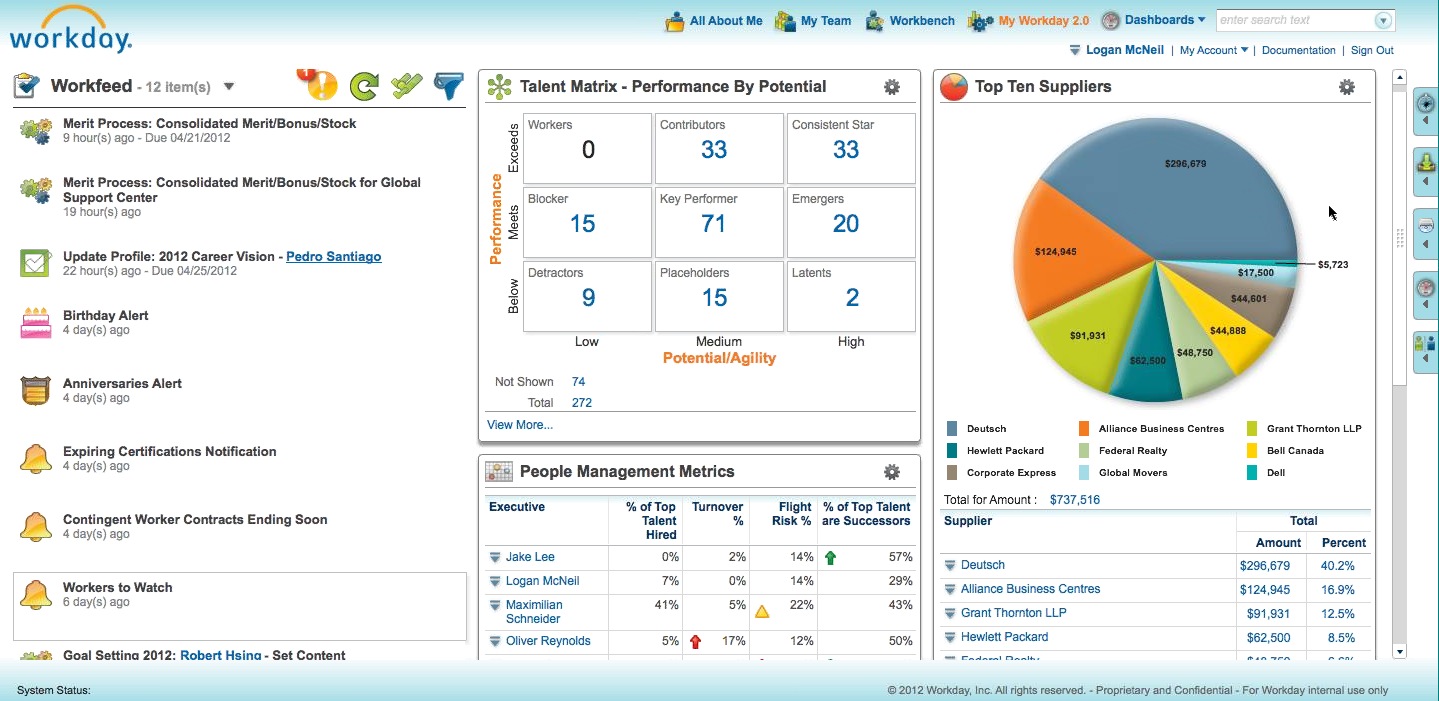Workday 16 delivers significant mobile updates


In prepared remarks, Stan Swete, Workday CTO said that mobile is getting a refresh with the focus on the need for analytics on tablets for higher level managers and task based functions on smartphones. Much of the conversation centered around Workday's commitment to different platforms. "We've taken a major step with HTML5...but in the meantime we will maintain separate streams for iOS which we see as predominant for tablets and HTML5, where we see a lot of promise...We're keeping an eye on Android but right now we're more focused on HTML5."
The difficulty for any vendor looking at the mobile space is the pace of innovation and change. Last year, Aneel Bhusri, co-CEO Workday talked to me at length on this topic. At the time he was betting that HTML5 would make significant progress but admitted that with a number of competing and developing platforms, it was difficult to place slam dunk winning bets. The same is true today and so while Workday seems to have moved closer to 'certainty' in its bet placing, nothing will be ruled out going forward. Interestingly, there was no discussion about Windows mobile.
iPhone gets an updated look and feel. Now, the iPhone looks a lot like the experience you'd expect to see on HTML5. Among enhancements are easier access to worker profiles, workfeeds, time off balances, requests and approvals.
Workday says that the top request from customers has been around improvements to and flexibility in the handling of the onboarding process. Companies can now personalise onboarding (employee welcome) screens to provide a tailored approach that might for example include the signing of NDAs and confidentiality agreements.
On learning, the company said that it does not intend to develop course catalogs or content systems. Here it relies heavily on partners. I'm somewhat torn on this. The onboarding process inevitably means providing employees with a lot of education material and I wonder whether this will impact the user experience.
On financials, there was little earth shatteringly news other than more progress on contract management and advanced asset management that allows Workday to offer support for specialised situations like media asset handling and complex contract negotiation. I would have liked an update on financial reporting which does need work to approach functional parity with systems that use row store databases. In fairness I was not expecting the company to say too much at this stage but will be looking for significant progress in the summer timeframe. However, Mark Nittler, who leads Workday's financials charge did say that "We're well beyond building out the basics."
On performance, Swete reported that the company has benchmarked the calculation of a 100,000 person payroll at 2 hours 59 minutes. The previous important milestone was 35,000 employees. This is an important step in allowing Workday to credibly talk up payroll among larger customers.
There was no time to get into some of the more strategic questions but Chris Kanaracus reports that:
In fact, Workday is "very close" to having a financials feature set that can replace global installations of SAP or Oracle, he [Swete] said. But it is best to consider this as a set of steps, Swete said.
First, Workday is "stepping up to companies of significant size that are public," he said. Then there are larger companies that are U.S.-based but have some multinational presence, he said.
I'm aware that both SAP and Oracle are deeply concerned about the momentum that Workday is building. The difficulty for those companies is that their current business models do not allow them to compete effectively with Workday without sacrificing margin. I know that SAP thinks differently on this topic and we will no doubt debate that point further in the near future. Elsewhere, Oracle is pushing hard on HCM, where it is particularly weak in the face of reduced commitment to PeopleSoft HR and the impending Fusion HCM public cloud launch. However it didn't go un-noticed that SuccessFactors has disappeared from Workday's partner ecosystems matrix.
There was an interesting aside on the question of database when one analyst asked about recent sniping of Workday's approach. Swete vigorously swatted that question with a reply that said: "We use MySQL as a persistent store and we've been doing in-memory for seven years so..." The short hand version might be: "Cop that Mr Competitor!" I along with other believe the database discussion to be a spurious argument. It is becoming increasingly obvious that line of business people don't care about the database, they care about getting things done. So when the conversation shifted to Workday's relationship with IT, Swete continued with: "I don't think IT sees us as as a threat but sure, there's always plenty of questions."
All in, the call continued to demonstrate that Workday is not being fazed or sideswiped by competitive issues. In that, it is doing exactly the right thing by ignoring everybody and focusing on what it knows it can do best.